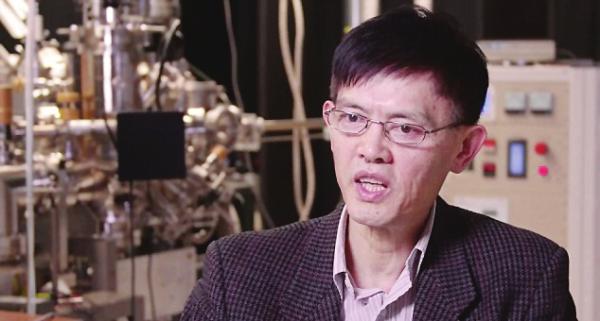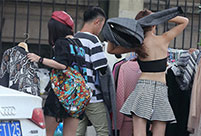

 |
| Xi Xiaoxing. (File Photo) |
The Justice Department on Friday moved to drop charges against a Temple University professor accused of trying to send sensitive superconductor technology to China.
The professor was accused of sharing sensitive American-made technology with China. Prosecutors had what seemed like a damning piece of evidence: schematics of sophisticated laboratory equipment sent by the professor, Xi Xiaoxing, to scientists in China.
The schematics, prosecutors said, revealed the design of a device known as a pocket heater. The equipment is used in superconductor research, and Dr. Xi had signed an agreement promising to keep its design a secret.
But months later, long after federal agents had led Dr. Xi away in handcuffs, independent experts discovered something wrong with the evidence at the heart of the Justice Department’s case: The blueprints were not for a pocket heater.
"It was an embarrassing acknowledgment that prosecutors and F.B.I. agents did not understand — and did not do enough to learn — the science at the heart of the case before bringing charges that jeopardized Dr. Xi’s career and left the impression that he was spying for China," said the New York Times.
“I don’t expect them to understand everything I do. But the fact that they don’t consult with experts and then charge me? Put my family through all this? Damage my reputation? They shouldn’t do this. This is not a joke. This is not a game,” said professor Xi.
About a dozen F.B.I. agents, some with guns drawn, stormed Dr. Xi’s home in the Philadelphia suburbs in May, searching his house just after dawn, he said. His two daughters and his wife watched the agents take him away in handcuffs on fraud charges.
Temple University put him on administrative leave and took away his title as chairman of the physics department. He was given strict rules about who at the school he could talk to. He said that made it impossible for him to continue working on a long-running research project that was nearing completion.
Peter Zeidenberg, Xi's lawyer, said: "If he was Canadian-American or French-American, or he was from the U.K., would this have ever even got on the government’s radar? I don’t think so."
It's the second time this year the Justice Department has falsely accused Chinese-born scientists of spying on the United States.
In March, U.S. federal prosecutors dropped charges against Sherry Chen, an employee of the National Oceanic and Atmospheric Administration.
Chen, whose given name is Xiafen, was accused of stealing sensitive information from a database for the nation's dams and lying about the breach.
The case against Chen backfired as 22 U.S. Congress members urged the country's Attorney General Loretta Lynch in May to investigate whether there is a practice of targeting federal employees based on their race or national origin.
"There's been a history of discrimination against Asian Pacific Americans, and there current theme is one of suspicion," House Representative Ted Lieu said during a press conference at that time.
 Art photos of Chinese beauty in Han Chinese clothing
Art photos of Chinese beauty in Han Chinese clothing Stunning photos of air show in China’s V-Day parade
Stunning photos of air show in China’s V-Day parade Construction of HK-Zhuhai-Macao Bridge enters final stage
Construction of HK-Zhuhai-Macao Bridge enters final stage Models change clothes on street in Hangzhou
Models change clothes on street in Hangzhou Model of heavy-lift copter makes debuts at Tianjin expo
Model of heavy-lift copter makes debuts at Tianjin expo Charming Chinese female soldiers
Charming Chinese female soldiers Beauty vs. muscular man
Beauty vs. muscular man First day in kindergarten
First day in kindergarten Pilots attending V-Day parade take group photos with their planes
Pilots attending V-Day parade take group photos with their planes Market plunges despite SOE plans
Market plunges despite SOE plans Refugee crisis spreads Syria woe to Europe
Refugee crisis spreads Syria woe to Europe China agrees to share advancements in satellites, telecom with Arab states
China agrees to share advancements in satellites, telecom with Arab states Chinese overseas investment hindered by lack of experience, political opposition in host countries
Chinese overseas investment hindered by lack of experience, political opposition in host countriesDay|Week